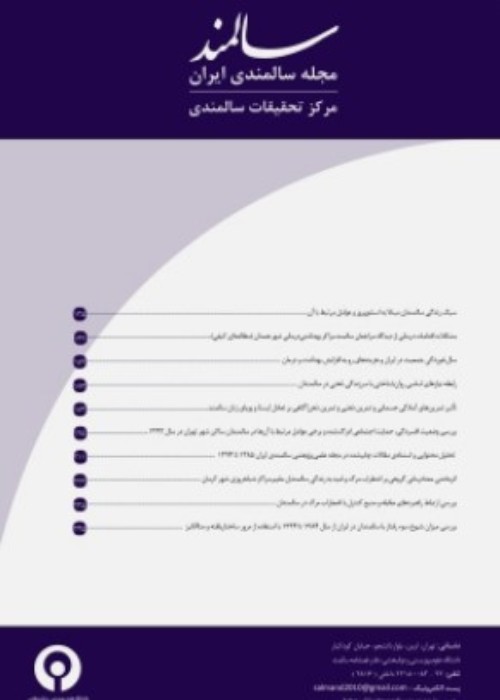Prediction of Psychological Well-Being in the Elderly by Assessing their Spirituality, Gratitude to God, and Perceived Social Support
Today, psychological care for the elderly has received increasing attention due to potential threats posed by aging, loneliness, gradual decline in physical activity, increase of chronic diseases, social isolation, and physical and mental disabilities. The positive psychology approach to mental health seeks to promote the mental health of people by identifying and developing mental abilities and competences. The present study aimed to predict psychological well-being of the elderly based on the components of positive psychology including spirituality, gratitude to God, and perceived social support.
Methods & Materials:
This is a descriptive correlational study conducted on 211 elderly people aged 60-70 years (109 males and 102 females) who were selected randomly. Data collection tools were a demographic form (surveying age, gender, education, marital status, and socioeconomic status), and Paloutzian and Ellisons’ Spirituality Well-Being Scale, short form of Ryff’s Psychological Wellbeing Scale, Emmons and Crumpler’s Gratitude to God Questionnaire, and Zimet’s Multidimensional Scale of Perceived Social Support. Collected data were analyzed in SPSS software V. 22 by using descriptive (Mean and Standard Deviation), Pearson correlation test, and stepwise regression analysis.
Mean and Standard Deviation of different study variables were reported as follows: Psychological well-being =7.1±10.68; Spirituality =90.22±15.36; Gratitude to God =14.09±2.41; Social support from family members =21.6±4.2; Social support from friends =16.5±5.8; and Social support from significant others =20.23±5. The results of stepwise regression analysis indicated that spirituality (F1,209=62.02, P=0.001), social support from family members (F1,208=11.06, P=0.001), and gratitude to God (F1,207=4.80, P=0.001) could significantly explain 27% of the psychological well-being variance in the elderly.
Increased spirituality, gratitude to God, and perceived social support especially from family members can improve psychological well-being of the elderly. Hence, Strengthening and paying special attention to their spiritual needs and perceived social support as well as planning health care for them can help increase their psychological well-being.
- حق عضویت دریافتی صرف حمایت از نشریات عضو و نگهداری، تکمیل و توسعه مگیران میشود.
- پرداخت حق اشتراک و دانلود مقالات اجازه بازنشر آن در سایر رسانههای چاپی و دیجیتال را به کاربر نمیدهد.



